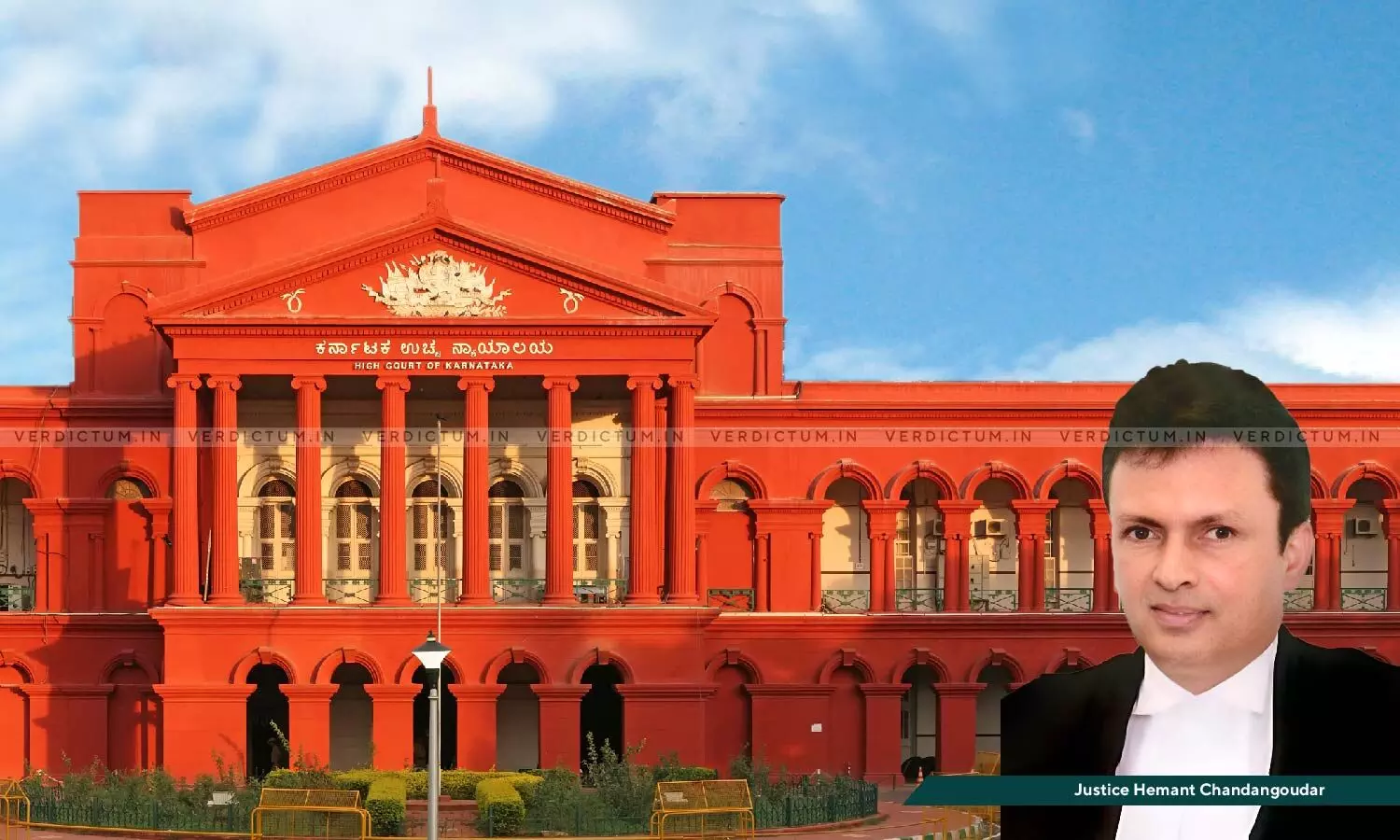
Karnataka HC Declares Invalid Reconstitution Of Karnataka State Bar Council's Committees By Its Chairman And Vice Chairman
 |
|The Karnataka High Court has held that the statutory authority exercised by the Chairman & Vice Chairman Of the Karnataka State Bar Council in reconstituting the State Bar Council’s committees is not legally valid.
The Court quashed the reconstitution of various committees by the Karnataka State Bar Council (KSBC), stating that the actions taken by the Chairman and Vice Chairman were not in accordance with the Karnataka State Bar Council (Election of Chairman and Vice-Chairman) Rules, 1978 (Rules). The Petitioners, elected members of the KSBC, challenged the reconstitution.
A Single Bench of Justice Hemant Chandangoudar held, “Therefore, the exercise of statutory authority by respondents No. 2 and 3 in reconstituting the committees, in violation of the Karnataka State Bar Council (Election of Chairman and Vice-Chairman) Rules, 1978, is not legally valid.”
Senior Advocate Aruna Shyam M. appeared for the Petitioners, while Senior Advocate D.R. Ravishankar represented the Respondents.
The Petitioners argued that the reconstitution of committees was carried out without adhering to the Rules framed under Section 15 of the Advocates Act, 1961. The Petitioners highlighted that the Rules required committees to be reconstituted through elections among council members via ballot. They further submitted that the Bar Council of India had extended the tenure of existing office bearers for completing the verification of KSBC members and stated that there should be no change in the office bearers during the extended period.
The Respondents argued that the Chairman was empowered to reconstitute the committees based on the unanimous resolution. It was also submitted that the Petitioners themselves were appointed to various committees through the same procedure and that the reconstitution was lawful.
The High Court further referred to Home Secy, U.T. of Chandigarh v. Darshjit Singh Grewal (1993), wherein the Supreme Court stated that statutory rules and regulations bind the concerned authority. “When the rules stipulate the procedure for constituting committees, the respondents cannot disregard or bypass the rules and constitute committees in violation thereof. The impugned reconstitution is unilateral and is violative of the democratic nature of the constitution of committees, as envisaged under the relevant Rules of 1978,” the Court observed.
Consequently, the Court held, “The fact that the petitioners were previously appointed as members of the committees by respondent No. 2 cannot serve as a justification for reconstituting the committees in violation of the prescribed rules. Such an action would set a precedent that undermines the mandatory nature of the rules governing the constitution of committees and would render the regulatory framework redundant. Rules framed under statutory authority are meant to ensure transparency, consistency, and fairness in governance, and any deviation from them without due process weakens their legal sanctity and democratic intent.”
Accordingly, the High Court allowed the Writ Petition.
Cause Title: Rajanna R & Ors. v. Karnataka State Bar Council & Ors. (Neutral Citation: 2024:KHC:45257)
Appearance:
Petitioners: Senior Advocate Aruna Shyam M.; Advocate Goutham A.R.
Respondents: Senior Advocate D.R. Ravishankar; Advocate Nataraj G.